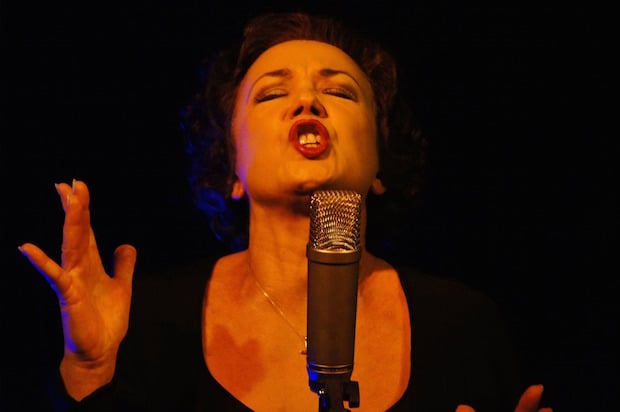 Image via pixabay.com
Image via pixabay.com
When it comes to studio recording, there are so many different elements that are all pieces in the puzzle of your perfect mix. From the overall sound the artist is aiming for, right down to the position of the pop filter, every little detail is a building block to one amazing end product.
In some cases, microphones can play a massive role in creating a high-quality recording. There are hundreds of different choices with equally as many options for creating different sounds. So making the choice can be overwhelming at times.
Choosing a microphone for studio recording is dependent on several different factors such as the microphone type, the frequency response, the singer’s voice, and what sound they’re looking to achieve.
But with all of that considered, there are a few go-to microphones for “typical” voice types. Again, every singer, performer, and engineer have different tastes for different voices, but it doesn’t hurt to know what microphone can enhance positive aspects of a singer's voice, and detract away from not-so-positive aspects. Finding a microphone that fits like Cinderella’s shoe for a singer can definitely save some time when it comes to EQing as well.
But before you find your perfect fit, you definitely need to know if you want to work with a condenser, dynamic, or ribbon microphone.
Dynamic, condenser, or ribbon: which mic should you choose?
Recording vocals isn't always an easy task, and it can take years of trial and error to learn what fits your taste. But tracking vocals is also such a unique recording situation. Every voice has its own character and personality. It's a thrilling experience to play to a singer's strengths and record a great vocal track.
While every voice is distinctive, I can bet you that an audio engineer will almost always head straight for a condenser microphone for a lead vocal. Recording a singer with a condenser microphone in the studio is a pretty common practice among engineers; it's an "industry standard."
Why? Well, condenser microphones are great at doing two things for vocalists: capturing subtle nuances of a singer's voice and having a defined high end. So your go-to choice for recording vocals might lead you to a condenser microphone simply because they do their job with vocals, and they do it really well.
However, just because condenser microphones are favorable for most vocal recordings, it doesn't mean you should write off dynamic and ribbon microphones. The role of dynamic microphones is usually onstage since they're durable (thanks SM58!), but they also have a spot in the studio as well. You might want to use a dynamic microphone for recording vocals because they tend to pick up less room noise compared to condenser microphones, they don't pick up as much sibilance, and they won't be as harsh on the high end. This is helpful if you have a singer who might have a brighter tone in his or her upper range.
As for ribbon microphones, they're fragile and seem a little old school, but ribbons are mellow, warm, and have a rounded top end that contrasts the shimmery high end of a condenser microphone.
Your go-to microphone
Like a singer's voice, all microphones are individual. Each has different qualities that can enhance and detract from certain sounds. Here are some go-to mic choices for typical voice types you might be working with.
Soprano and tenor voices
Soprano singers' ranges can vary, but a soprano's fundamental frequency ranges from about 250 Hz up to 1,500 Hz. These singers' ranges are nothing short of impressive, but you definitely want to make sure you have a microphone to capture those high notes without sounding too bright, tinny, or piercing.
Tenor voice types are the highest of the male vocal range. Finding a singer who is a true tenor is a special treat, but be aware that this voice type can have bright qualities to it and you might need to back off the high end, similar to a soprano voice.
Go-to: Neumann U87
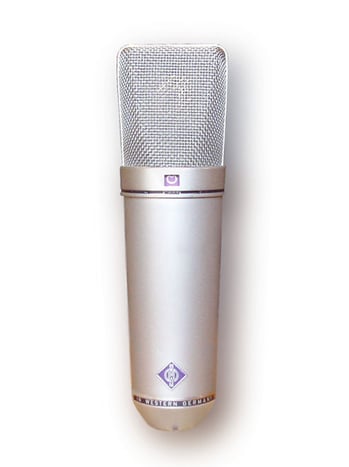 Image via Wikimedia Commons / CC BY-SA 3.0
Image via Wikimedia Commons / CC BY-SA 3.0
The Neumann U87 is a damn good microphone and makes just about anything sound great. It's a wonderful microphone for vocals because it lacks sibilance and gives a warm, dark sound for vocals. It's a staple in so many industry microphone closets for a reason.
Alto
An alto's range falls below a soprano's range, though there can be some overlap. A female alto singing voice can be comparable to the female speaking voice and some wind instruments. The alto voice might have more of a "chest" quality to the sound and could have the potential to peak in the mid-range.
Go-to: Audio-Technica AT4050
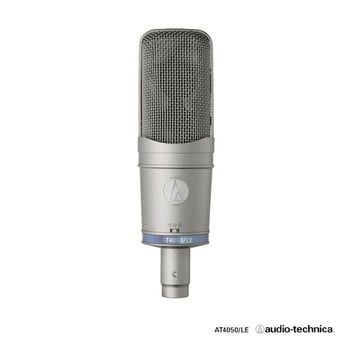 Image by Audio Technica via Flickr / CC BY-ND 2.0
Image by Audio Technica via Flickr / CC BY-ND 2.0
The AT4050 is a condenser microphone that plays to the richness that can occur in an alto singer's range. It's a favorite for some engineers when taking on lead vocals. This microphone is over $500, but it definitely doesn't cost an arm and a leg to purchase.
Bass
There really isn't anything like a bass vocalist. Their voices are so much fun to record and listen to. But you can probably guess that bass voices can come across muddy on the occasion since their range can get down low on the frequency spectrum.
Go-to: AKG C414 ULS
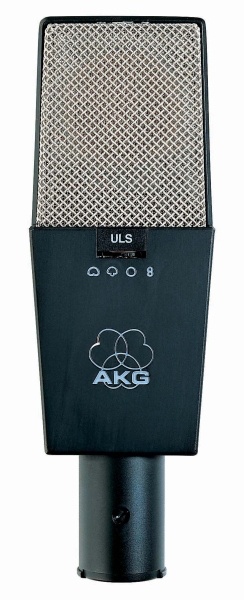 Image via akg.com
Image via akg.com
This condenser microphone is quite the workhorse. It goes far beyond vocals, but it can be great for bass voices. While this mic leans toward the pricey end, it's definitely worth saving for. If you're a bass, the next time you find yourself booking a session, ask to try out the AKG C414!
Nasal voices
If you record vocalists often, you'll eventually come across someone who has a nasal quality to their voice. A nasal quality will definitely need some EQ work, but choosing a flat-response microphone will do you well as far as removing some less favorable sounds. Avoid microphones that have presence peaks built into their response curves; this will only enhance those "barky" sounds.
Go-to: SM7B
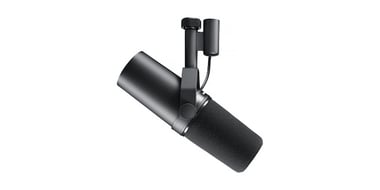 Image via shure.com
Image via shure.com
The Shure SM7B is a dynamic microphone with a flat, wide-range frequency response. The flatness of the microphone will help out flatten out the peaks of even the most nasal voices.
Raspy voices
Raspy voices aren't a negative. Sometimes, they're exactly what a song calls for. But there are times that it's necessary to detract away from the not-so-pleasant mid-range frequencies that can happen with a raspy voice.
Go-to: Peluso P12
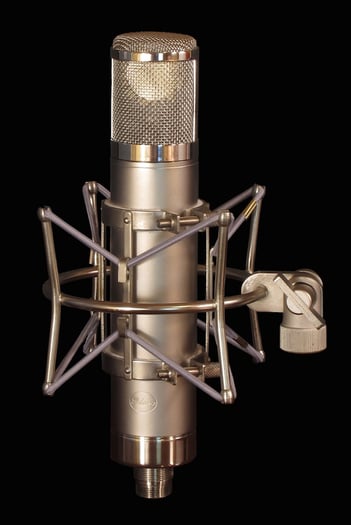 Image via pelusomicrophonelab.com
Image via pelusomicrophonelab.com
The P12 is not an inexpensive choice. It's a microphone that will be found in professional studios, so if you have the opportunity to record your song professionally, ask for this mic. The P12 does not emphasize the mid-range, which is the problem area for raspy voices.
Alternatively, the Peluso 2247 is a much more affordable option for raspy singers, but the high end leans toward the flatter side.
Boomy voices
"Boomy" is one of those audio terms that doesn't really have any meaning outside of the studio, yet everyone seems to know what it means. A boomy voice can sometimes have too much power or seem a little muddy.
Go-to: Royer R-101
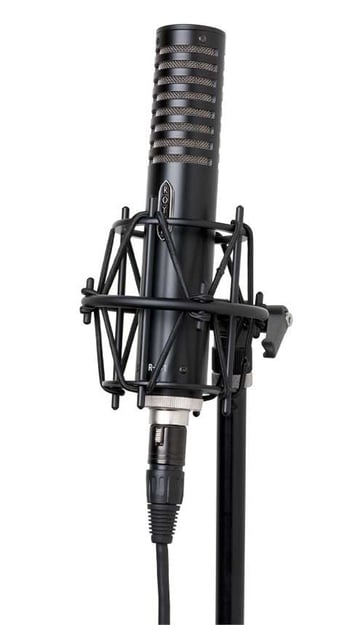 Image via royerlabs.com
Image via royerlabs.com
The R-101 is a modern ribbon microphone that exhibits a flat frequency response that makes it well balanced for lower frequencies. Royer, the maker of this ribbon microphone, included multi-layered wind screening that allows for reduced proximity effect for less bass buildup.
So with all of this information being thrown at you, remember: choosing a microphone is dependent on so many different factors. These microphone suggestions are just that – suggestions. These might be some good starting points, or maybe even some good ending points. But it really all comes down to personal taste and what fits the song best.
What are some of your go-to microphone choices? Let us know in the comments below!
Next up: The Simple Test You Can Do to Find the Right Microphone for Your Voice
Rachel Bresnahan is an editorial intern at Sonicbids.







